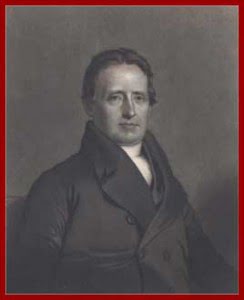Here is an opportunity to learn from two esteemed and learned brothers in the faith, as they each step out into a new year. They do not offer resolutions, but meditations—on the goodness and mercy of God; on the depth of His love; and on their place in His kingdom.
From The Life of Daniel Baker, p. 64—
Friday, January 1st, 1813.
This morning I have been almost overwhelmed with a sense of the infinite majesty of Almighty God, and my own insignificancy and unworthiness. O, how astonishing is the grandeur, love, and condescension of Jehovah! He who created and sustains universal nature; who keeps in quiet and unceasing motion the countless and stupendous systems of planetary worlds; who causes them all to roll along and revolve with inconceivable velocity, and most exact order and harmony.
This great and glorious Being has been and is still mindful of man; man that is a worm, and the son of man that is a worm; nay, has devised a plan for his redemption; a plan, O how wonderful and astonishing! a plan for the execution of which the Lord of glory bowed the heavens, came down upon earth, was clothed in human flesh, and suffered a cruel and ignominious death; and all this, that guilty, apostate men might be redeemed from his pollutions, and introduced into the blissful presence of his Maker and his God. Be astonished, O heavens! be amazed, O earth! at this wonder of wonders, and thou, my soul, admire, and adore, and magnify thy Creator, Preserver, and Redeemer, and let the mystery of godliness be for ever the sweet, the delightful, the enrapturing theme of thy meditations.
O that I might be more abstracted from the world; that I might worship my God with more devotedness of heart! O that I might feel the influence of a Saviour’s love shed abroad in my soul; that I might be more zealous in His cause; that I might feel a more lively and affectionate solicitude for the eternal welfare of my fellow-men; that I might devote myself more unreservedly, more heartily and diligently to the service of the greatest and the best of Beings. My God! to thee I commit my way—bring it to pass.
From The Life of Dr. Jacob Jones Janeway—
January 1, 1809.
“Behold, God has spared my life, and permitted me to enter on the threshold of a new year. I have great reason to be thankful to God for his many mercies to me and to my family.
Yesterday being set apart as a day of thanksgiving in this city, I endeavoured to recollect the favours which I and my family have received from God, and to be grateful. I felt some emotions of gratitude, and gave thanks and praise to God. Oh, that this year may be better improved than the last; and if I live to see the end of it, may I be found then nearer in point of preparation than I am at present! Great changes, it is to be apprehended, will take place in this country, before the close of this year. The Lord in mercy, prepare me for whatever may await me; and oh, save my country! This day, as well as yesterday, my dear colleague preached. It is more than four months since he was able to preach; and yet the Lord in mercy, sent supplies to our church.
For this favour, and for his restoration thus far, I praise God. The Lord make him still a lasting blessing.”
[here the biographer closes with a lesson drawn from the above entry:]
He mentions that a meeting was called for the express purpose of revising the constitution of the Bible Society, and the original friends were apprehensive of attempts, seriously to change its character, yet the better feeling prevailed, and the effort was voted down, to the joy of its friends. How often are the early movements for good threatened by indiscreet and mistaken friends! How true that Satan sows tares amid the wheat! There is no calculating how much mischief would have accrued, and how much good might have been hindered, if any serious modification had been accomplished in the constitution of this, the mother Bible Society of our land.

